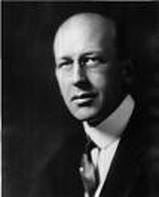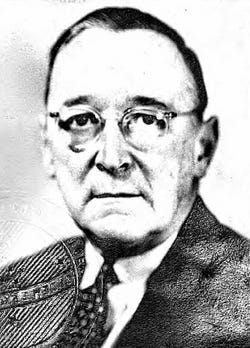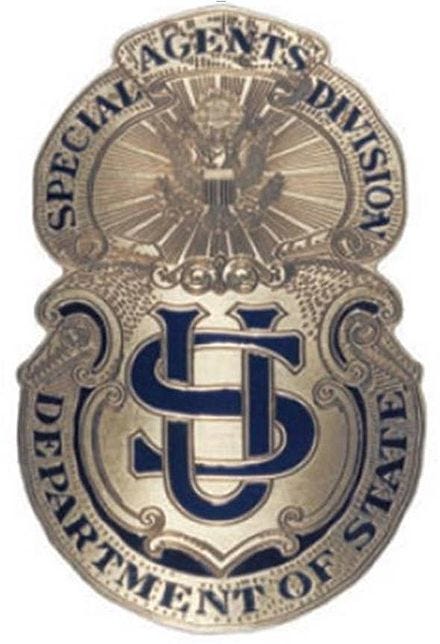Auchinclosses organize the First Coalition War
In his final book, The Case Against the Fed, published a year before his death, Murray Rothbard observes that the Rockefellers were reluctant to assist the Morgans in drawing America into the First World War alongside the Morgans' allies, the British Empire.
And of all the leading ”Anglo” financial interests, the Rockefellers, ally of the Kuhn, Loebs, and a bitter rival of the Angle-Dutch [sic] Royal Dutch Shell Oil Company for world oil markets and resources, was one of the very few who remained unenthusiastic about America’s entry into the war. (Murray Rothbard, The Case Against FED. p. 128.)
This raises the question of what might have been the price for the Rockefellers' support of entering the First World War. It seems plausible that, at the very least, the Rockefellers sought two concessions from the WASP elite: greater access to global oil markets and the inclusion of their representatives in managing the war effort, thereby facilitating the cartelization of the economy. This would have involved placing their men in both the cabinet and the collectivized war economy.
As noted in the first part of this series, Samuel Bush was one such figure. He served not only as head of the Facilities Division of the War Industries Board but also, in practice, represented the Rockefeller-connected Remington arms industries. However, Samuel Bush could hardly have been the sole representative of Rockefeller interests in the war effort. Who else might have been involved?
One key figure in the push for war was Gordon Auchincloss, son-in-law and occasional personal secretary to Edward House, President Wilson’s right-hand man. Some even dub Auchincloss "the father of U.S. financial intelligence."

Although he initially appeared closely aligned with the Morgan camp, Auchincloss also maintained ties to the Rockefellers. His brother was an emerging Republican politician, and, more significantly, his cousin Hugh Auchincloss inherited part of the Standard Oil fortune through his mother.

A notable cabinet shift occurred in 1915 when the pro-peace Secretary of State William Jennings Bryan resigned in protest over President Wilson’s pro-British policies, which breached American neutrality during the First World War. Edward House recommended Robert Lansing as Bryan’s successor. Soon after, Gordon Auchincloss ascended to a prominent role in the administration. Were both Lansing and Auchincloss Rockefeller affiliates?
Robert Lansing’s father-in-law, George Foster, a former Republican Secretary of War, appeared to have close ties to the Rockefellers. More crucially, Lansing advanced his nephews, John Foster Dulles and Allen Dulles, to significant government positions. Rothbard observes that the Dulles brothers were firmly entrenched in the Rockefeller camp, likely aided by their familial connections:
Most important is the little-known fact that Dulles’s wife was Janet Pomeroy Avery, a first cousin of John D. Rockefeller, Jr. (Murray Rothbard, Wall Street, Banks, and American Foreign Policy).
Much of the government’s business soon bypassed official channels, flowing instead through Colonel House. Indeed, a shadow or deep state emerged within the government, not only pushing for U.S. entry into the war but also preparing for it in advance. As early as 1916, before the U.S. entered the First World War, Robert Lansing established The Bureau of Secret Intelligence, also known as the U-1.
When the war began, John Foster Dulles received an Army commission as a Major on the War Industries Board. It would not be surprising if, at this stage, the Dulles brothers together with Samuel Bush, Colonel House and Gordon Auchincloss were already contributing to the development of America’s secret intelligence apparatus.

In the following year, Samuel Bush’s eldest son, Prescott Bush, enlisted in the army. More significantly, he also joined military intelligence. Did Auchincloss assist the young officer Prescott Bush in securing this position? Was Prescott Bush part of the U-1 network alongside the famous Dulles brothers?
Evidently, Lansing, the Dulles brothers, Auchincloss, and both Samuel and Prescott Bush worked to advance Rockefeller interests within the Wilson administration. This may also explain why the U-1 recruited William Yale as its Middle East director of operations. Yale was not only a direct descendant of one of Yale University’s founders but also a Standard Oil employee tasked with exploring oil in the Middle East.
Wikipedia notes that Yale had no experience: “for most of the remainder of the war, the American intelligence mission in the Middle East—a mission that would include the analysis of battlefield strategies and regional political currents, the interviewing of future heads of state, and the gathering of secrets against governments both friendly and hostile—would be conducted by a single twenty-nine-year-old man with no military, diplomatic, or intelligence training. To these deficiencies, William Yale could actually think of a few more:”
"I lacked a historical knowledge of the background of the problems I was studying. I had no philosophy of history, no method of interpretation, and very little understanding of the fundamental nature and function of the [regional] economic and social system."[5]
Obviously, Yale’s biggest asset was that he was a Rockefeller man. He and increasing influence in the Middle East were obviously part of the price for the Rockefellers’ support in drawing the United States into the First World War. Most likely, the WASP elite—namely, the British and Morgan interests—had offered the Rockefellers greater access to global oil markets. The British may have also directed the British-Dutch-Jewish Shell Oil Company to partially withdraw, halting the international oil conflict between Standard Oil and Shell.
Yet, this was not the full price. The Rockefellers sought additional concessions.
Continues in Part III. Mohrenschilds and Baku oil.
PS:
All articles published in Ruling Elite Studies are collaborative efforts. Please contribute ideas, points, citations, images, and references in the chat. This way, all articles are continuously being improved.




